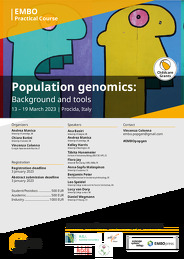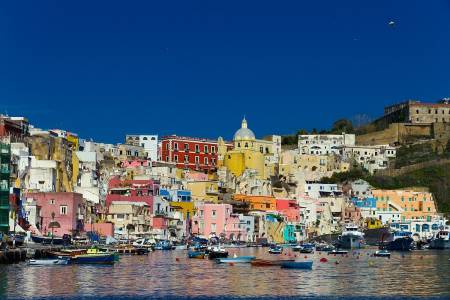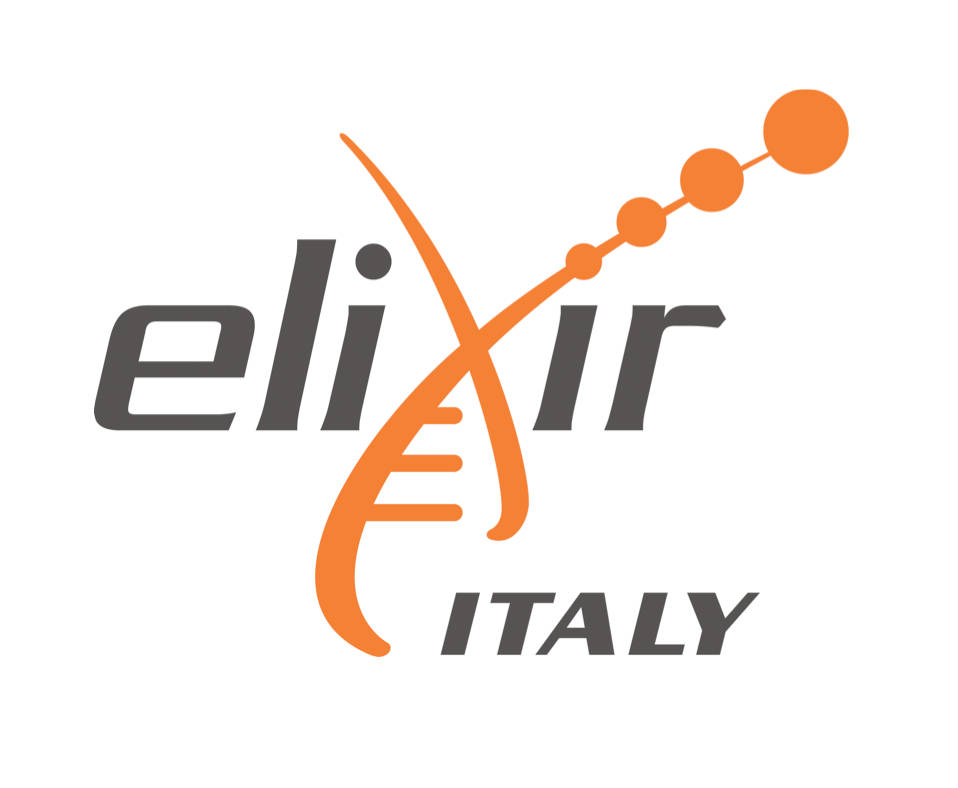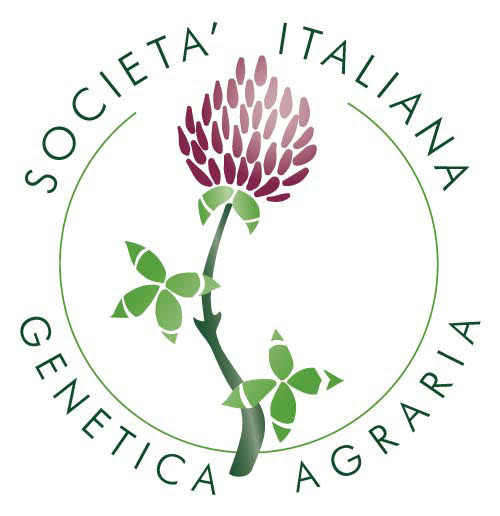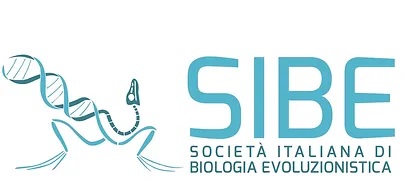Registration includes:
- Accommodation in shared room for 7 nights (IN: 13/03/2023; OUT: 20/03/2023)
- Catering (breakfasts at the hotel, lunches, coffee breaks, dinners)
- Course materials
Payment
Successful participants will receive payment details by email.
Selection criteria
This course is aimed at evolutionary biologists with basic bioinformatics skills.
Selection of participants will be based on:
- Solid background in evolutionary genetics, since the course is advanced;
- Good knowledge of Linux operating system, R and basic shell commands, Python knowledge is a plus;
- Lack of previous knowledge of the population genomics tools taught (we want you to learn new skills);
- Opportunity to apply the learning outcomes to their work soon after the course;
- Impact of the course for the participant and his/her research group (we discourage multiple applications from the same group);
- Submission of an abstract (mandatory).
Fulfillment of these conditions by participants will be assessed through the registration form.
It is mandatory that students attend the whole length of the course. Participants are expected to bring their own laptop; if not possible, this should be declared during registration.
Abstract guidelines
Abstract guidelines: max 200 words.
To submit the abstract access your course account after registration.
Abstracts should describe participants’ research projects to be presented with a poster during the course.
Poster specifications
PDF format, vertical, maximum dimensions 70 cm width x 100 cm height (max 10 MB) and in JPEG 700x1000 pixels, 300 dpi.
Travel grants and registration fee waivers
Travel grants and registration fee waivers are available for participants.
Selection of awardees is handled directly by the organizers. EMBO travel grants and registration fee waivers are allocated on the basis of the quality of the submitted abstract.
Applicants do not need to apply separately for these but should indicate on the registration form if they wish to be considered.
Additional travel grants are available for EMBC Associate Member States Chile, India, Singapore and Taiwan.
Special travel grants and registration fee waivers
A limited number of travel grants and registration fee waivers are availablefor scientists working in Croatia, Czech Republic, Estonia, Greece, Hungary, Italy, Lithuania, Luxembourg, Poland, Slovenia and Turkey. Grants are allocated on the basis of the quality of the submitted abstract.
A maximum of 700 Euros per participant are available to cover registration fees, travel, and accommodation (no additional subsistence costs can be covered). To apply, please indicate the itemized amount requested in the travel grants section of the registration form.
Child care grants
EMBO Courses and Workshops offers grants to offset additional childcare costs incurred by participants or speakers when participating at any EMBO Courses and Workshop funded meeting. Eligible costs include fees for a caregiver or child-care facility, travel costs for a caregiver, or travel costs for taking the child to the meeting etc. Please indicate on the registration form whether you would like to be considered for the grant. Please also describe how you intend to use the childcare grant and specify the sum that you will need.
For info on available child-care facilities in Procida contact: embo.popgen@gmail.com
Grant funded by Associazione Genetica Italiana (AGI)
One grant of 500 EUR covering the registration fee of one student/post-doc who is an AGI member or works in a lab in which the PI is an AGI member, will be awarded by the AGI.
Grant funded by Italian Society of Agricultural Genetics (SIGA)
One grant of 500 EUR covering the registration fee of one student/post-doc who is a SIGA member or works in a lab in which the PI is a SIGA member, will be awarded by the SIGA.
Grant funded by Societa' Italiana Di Biologia Evoluzionistica (SIBE)
One grant of 500 EUR covering the registration fee of one student/post-doc who is a SIBE member or works in a lab in which the PI is a SIBE member, will be awarded by the SIBE.
Code of conduct
Anti-harassment and non-discrimination policy
This EMBO meeting shall maintain an environment free of harassment and discriminatory behaviour for everyone, regardless of gender, gender identity and expression, age, sexual orientation, disability, physical appearance, ethnicity, beliefs (religious or otherwise) or manner of articulation.
Harassment and discrimination of attendees in any form, either in person or online is not tolerated.
Attendees are expected to conduct themselves in a professional manner and all communication and behavior should conform to a respectful environment for all.
Media and communications policy
Unpublished data may be presented at this meeting and presenters may not want their results to be communicated beyond the audience in attendance at the event. Participants must seek approval from the presenter before quoting or passing on any of the data presented.
Furthermore, the recording or communication of the scientific content presented (e.g. talks, discussion sessions or posters) by audio, video, photographs or any other means, or communication via social media needs to be agreed upon by all concerned.
Attendees violating this Code of Conduct may be asked to leave the workshop, practical course or lecture course without a refund at the sole discretion of the organisers.
Attendees are expected to respect the media and communications policy during this EMBO event.




